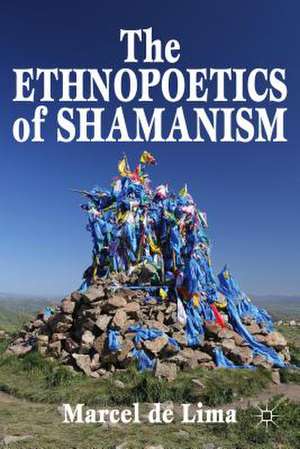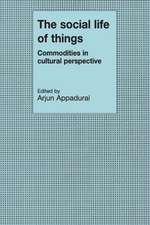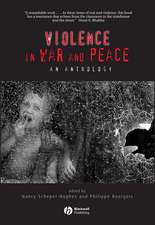The Ethnopoetics of Shamanism
Autor M. Santos, Kenneth A. Loparoen Limba Engleză Hardback – 13 aug 2014
Preț: 622.52 lei
Preț vechi: 732.39 lei
-15% Nou
Puncte Express: 934
Preț estimativ în valută:
119.13€ • 124.93$ • 99.34£
119.13€ • 124.93$ • 99.34£
Carte tipărită la comandă
Livrare economică 08-22 ianuarie 25
Preluare comenzi: 021 569.72.76
Specificații
ISBN-13: 9781137443687
ISBN-10: 1137443685
Pagini: 265
Ilustrații: VII, 265 p.
Dimensiuni: 140 x 216 x 20 mm
Greutate: 0.43 kg
Ediția:2014
Editura: Palgrave Macmillan US
Colecția Palgrave Macmillan
Locul publicării:New York, United States
ISBN-10: 1137443685
Pagini: 265
Ilustrații: VII, 265 p.
Dimensiuni: 140 x 216 x 20 mm
Greutate: 0.43 kg
Ediția:2014
Editura: Palgrave Macmillan US
Colecția Palgrave Macmillan
Locul publicării:New York, United States
Cuprins
Introduction 1. Shamanism: a Historical Appraisal 2. The Poetics of Shamanism 3. The Case of Nicholas Black Elk 4. The Case of María Sabina and the Sacred Language of Mushrooms 5. The Case of Carlos Castaneda and Don Juan Conclusion
Recenzii
"In The Ethnopoetics of Shamanism, Marcel de Lima gives us the clearest and most complete account of what some of us, in the last years of the second millennium, were speaking of as a new 'ethnopoetics' that would change forever the dimensions of what we had spoken of before this as poetry and art. Whatever the final outcome of that questing, this is for now the definitive book to read as a telling of what came before and may still follow after" - Jerome Rothenberg, Professor Emeritus, University of California, San Diego, USA
"This book is more than a scholarly, sympathetic, and shrewd guide to the history of Western attempts to understand shamanism and to its ethnopoetic presence in the work of Plato, Robert Graves, Aldous Huxley, and Gary Snyder. It is more than an intelligent commentary on the 'chain of texts' generated by contact with Marcel de Lima's three case studies: Black Elk, María Sabina, and Carlos Castenada's Don Juan. It is a superbly documented and clearly articulated argument for 'parallel modes of knowledge' that dissolves distinctions between scientific and poetic discourses in an attempt to grasp the full potential of the human imagination for a deeper quality of life." - Terry Gifford, Bath Spa University, UK
"Marcel de Lima's book offers an original and fascinating insight into Western literary uses of shamanism from the Romantics through to the ethnopoetics movement of the Sixties and the Castaneda controversy. He brings out theconstant overlapping of ethnographic and literary interests and gives a fine sense of the excitement and challenge of the formal and intellectual experimentation of the Sixties, managing to be both sympathetic and appropriately skeptical. This book is an overdue revisiting of the important debates over ethnopoetics and a penetrating and exciting account of what shamanism has meant to millions of ordinary readers as well as scholars." - David Murray, Professor Emeritus, American and Canadian Studies, University of Nottingham, UK
"This book is more than a scholarly, sympathetic, and shrewd guide to the history of Western attempts to understand shamanism and to its ethnopoetic presence in the work of Plato, Robert Graves, Aldous Huxley, and Gary Snyder. It is more than an intelligent commentary on the 'chain of texts' generated by contact with Marcel de Lima's three case studies: Black Elk, María Sabina, and Carlos Castenada's Don Juan. It is a superbly documented and clearly articulated argument for 'parallel modes of knowledge' that dissolves distinctions between scientific and poetic discourses in an attempt to grasp the full potential of the human imagination for a deeper quality of life." - Terry Gifford, Bath Spa University, UK
"Marcel de Lima's book offers an original and fascinating insight into Western literary uses of shamanism from the Romantics through to the ethnopoetics movement of the Sixties and the Castaneda controversy. He brings out theconstant overlapping of ethnographic and literary interests and gives a fine sense of the excitement and challenge of the formal and intellectual experimentation of the Sixties, managing to be both sympathetic and appropriately skeptical. This book is an overdue revisiting of the important debates over ethnopoetics and a penetrating and exciting account of what shamanism has meant to millions of ordinary readers as well as scholars." - David Murray, Professor Emeritus, American and Canadian Studies, University of Nottingham, UK
Notă biografică
Marcel de Lima Santos is Associate Professor at the Universidade Federal de Minas Gerais, Brazil.














